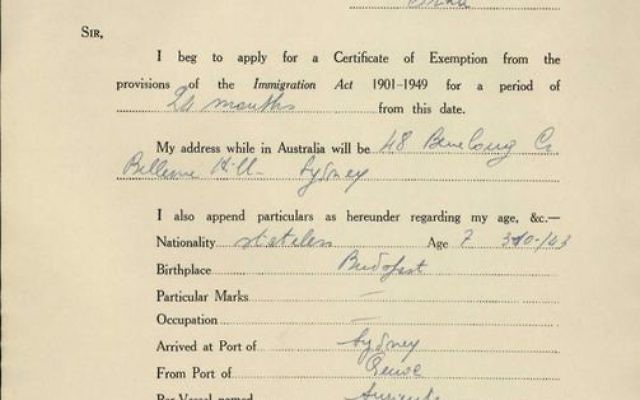Frydenberg and the citizenship crisis
The problem of Members of Parliament with dual citizenship has engulfed the government, which is struggling to maintain focus as it lurches from crisis to crisis.
THE problem of Members of Parliament with dual citizenship has engulfed the government, which is struggling to maintain focus as it lurches from crisis to crisis.
But it’s not just the government that has lost focus. The country, and those who targeted Josh Frydenberg last week, should be ashamed of themselves.
The saga began in May 1938 when the Hungarian government proclaimed that only 20 per cent of lawyers, engineers, and physicians in any company could be Jewish.
One year later, people with two or more Jewish grandparents were forbidden from being employed by the government and a host of other laws were enacted to further restrict the number of Jews in businesses.
That same year, Jews were described as aliens, and were barred from acquiring citizenship.
About 250,000 Hungarian Jews, including my grandfather, lost their income. In my grandfather’s case, he started selling flowers at a cemetery to try and earn some money for his family.
In 1941, when there were an estimated 800,000 Jews in Hungary, they were barred from voting and it became illegal for non-Jews to have intercourse with or marry Jewish people.
Two years later, with the laws stacked against her, Erica Strauss, who later became Erica Frydenberg, was born in Budapest. She was not considered a Hungarian citizen when she was born and within a year, was forced into a ghetto.
The Nazis’ ultimate aim was to put all Jews in ghettos and then kill them. While that plan failed, by the end of the war nearly 600,000 Hungarian Jews had been murdered.
Erica was one of the lucky ones. Having escaped Hungary, she was able to resettle in Australia. Deprived of citizenship in the country of her birth, she considered herself stateless, and said so in her application to become an Australian citizen in 1950.
For more than 60 years living in Australia, her country of birth did not consider her to be a citizen.
In fact in 2010, when Frydenberg was elected to parliament, he and his mother were definitely not Hungarian citizens.
But in 2011, unbeknown to Erica, a country she fled from as a child attempted to bestow citizenship on her. At the same time, in an attempt to do the right thing by Jewish people, they also attempted to bestow citizenship on her children, including Frydenberg.
Whether the Minister or his mother are indeed Hungarian citizens is still in question. But what is not, is the reason that dual citizens are not allowed to become members of Australian Parliament.
The line was written into the constitution to make sure that, rightly, people representing the Australian people always put Australia first and do not have dual loyalties.
Under the circumstances, however, to suggest that Frydenberg may be a loyal Hungarian is offensive, both to his mother, other survivors of the Holocaust and the 600,000 murdered Jews forsaken by that country.
In the Australian cult movie The Castle, lawyer Dennis Denuto is asked what part of the constitution he is referring to, and he states, “It’s the vibe of the thing.”
It’s a hilarious scene, but it’s all too relevant to this case.
Is Frydenberg a Hungarian citizen? I don’t know. But surely common sense and logic must prevail here. It’s the vibe of the thing.
Frydenberg was 40 years old and already an MP when a foreign country tried to bestow citizenship on him, without his knowledge, in an attempt to apologise for murdering his family.
Others, inadvertently, have already fallen foul of this constitutional quirk.
But if it now makes Frydenberg ineligible for parliament, it’s not just a constitutional anomaly that needs addressing, it’s a constitutional catastrophe.
JOSHUA LEVI is deputy editor of The AJN.


comments